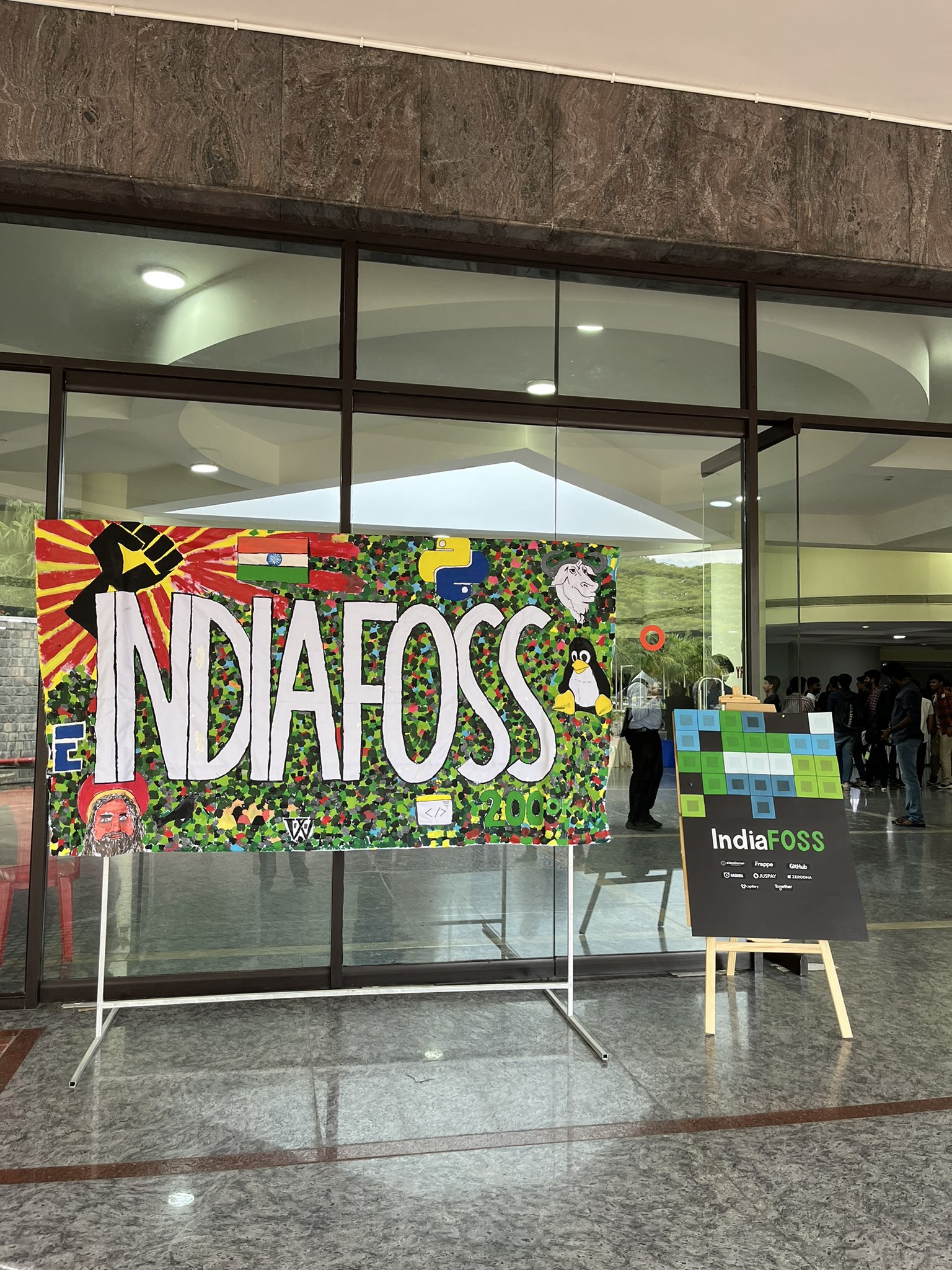Attending IndiaFOSS 2022
On June 28, I received a text from Anand nudging me to submit a CFP for IndiaFOSS. Until then, I’d not planned to attend IndiaFOSS because travelling to participate in a conference didn’t seem enticing. However, the thought of visiting Bangalore (a city where I spent five years before Covid took the joy from our lives) stayed in my mind for the rest of the day. Call it serendipity or just that little external motivation by Anand; I decided to submit a proposal on Self Hosting with Nomad. IndiaFOSS would be the first physical conference I would attend after the pandemic. I love attending conferences because you get to meet and interact with many people (I somehow dislike the term “networking with people” because it’s heavily connoted with marketing/sales pitches).
IndiaFOSS is a v2 of a small pilot conference IndiaOS that happened in 2020. Around 650 people attended IndiaFOSS, and the execution scale was much bigger this time. IndiaFOSS is a 100% volunteer-driven conference, yet everything was quite professionally managed. My friend Dhiraj travelled from Chennai to attend the conference, and I hung out with him for most of the next two days.
Filling our tummies with a scrumptious breakfast of Thatte Idlis, we headed to attend the keynote by Rushabh, who gave an excellent overview of FOSS United and its journey so far. There were a series of exciting talks right after - especially by Kovid, a prolific FOSS contributor from India. Kovid’s software is widely used across the globe. He shared the story of how calibre evolved from a bunch of scripts written to get around Sony’s DRM to become the most sought-after ebook management tool that it is now. I’ve myself used calibre in one of my initial projects(back when I was still learning Python, please don’t judge that codebase). Next was the much-awaited interview of Rudra Saraswat - the 12-year-old whiz kid who’s a primary contributor to Ubuntu Unity Remix and many other projects. The entire auditorium was stunned to witness how this bright young kid manages his studies, extra-curricular and FOSS projects with a laser-sharp focus.
I spent some time reviewing my slides which were scheduled right after an excellent talk on hpw the Kubernetes release team works - by Nabarun. I was pleasantly surprised to see many people interested in Self Hosting/Nomad. You can check out the slides here.
It was time for lunch, and I finally got to meet Vinayak, Bibhas, Gaurav and Raghav with whom I’ve been interacting in a small Discord group since so many months! This is what pandemic years took away from us, sigh!
After lunch, Kailash presented his fantastic talk on languages, dictionaries, and his FOSS project - dictpress. Kailash was anticipating that people would be drowsy after lunch, but I doubt anyone would want to miss this talk. He gave a glimpse of the monumental work done by Datuk KJ Joseph and V. Krishna in the field of dictionaries and how dictpress makes it easier for anyone to host a dictionary website for any language.
The rest of the day was spent hanging out in the lobby, meeting fellow hackers, and chit-chatting. I consider myself an introvert, but I guess with developers, I tend to speak up openly because we tend to ignore any small-talks :P. Rainy evenings and a weekend meant all the Peak Bengaluru memes about not finding cabs were experienced first-hand.
Day 2 had quite a good lineup of talks as well. Krutika shared the designer’s dilemma of contributing to FOSS Projects. Nemo talked about how we could get a FOSS UPI app and touched upon the openness of UPI. We even did an open space around Self Hosting where many of us self-hosted enthusiasts came together and discussed different topics/problems we encountered while self-hosting. It was my first time interacting with Abhas, who runs Deeproot Linux. He shared his wisdom and experiences from self-hosting email servers, media servers and just about anything. I was pretty motivated by his dedication.
The best part about IndiaFOSS was that this wasn’t a conference meant just for techies. The talks highlighted every domain of FOSS- policy, design, languages, and hardware rather than just keeping it limited to software. I was happy to see a conference not peddled with any “corporate” product talks. This is what all FOSS conferences should look like, I guess?
I look forward to attending (and hopefully volunteering) next year’s conference!

Fin